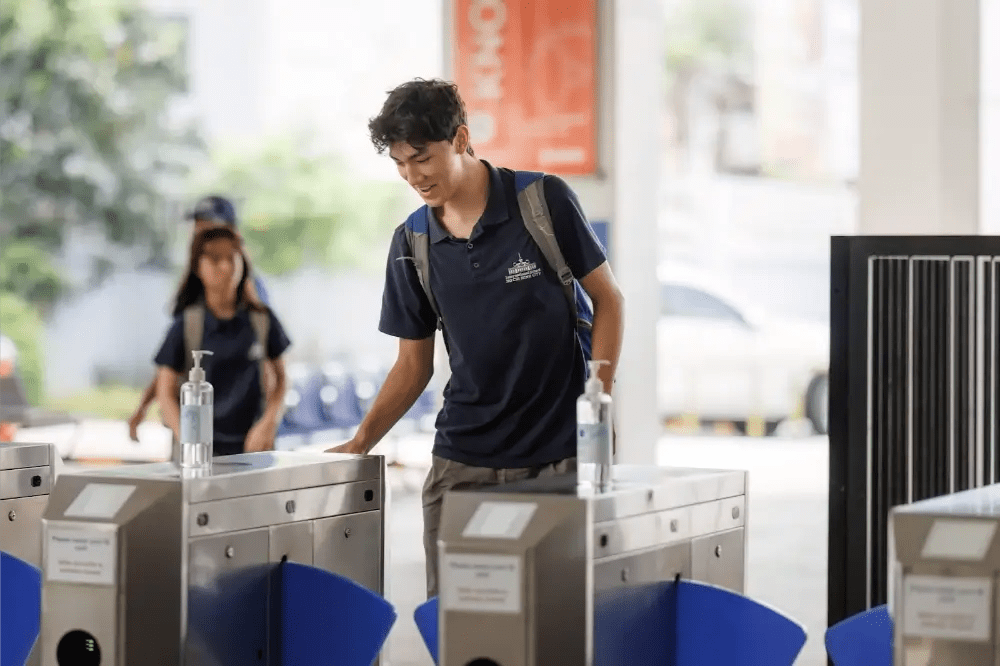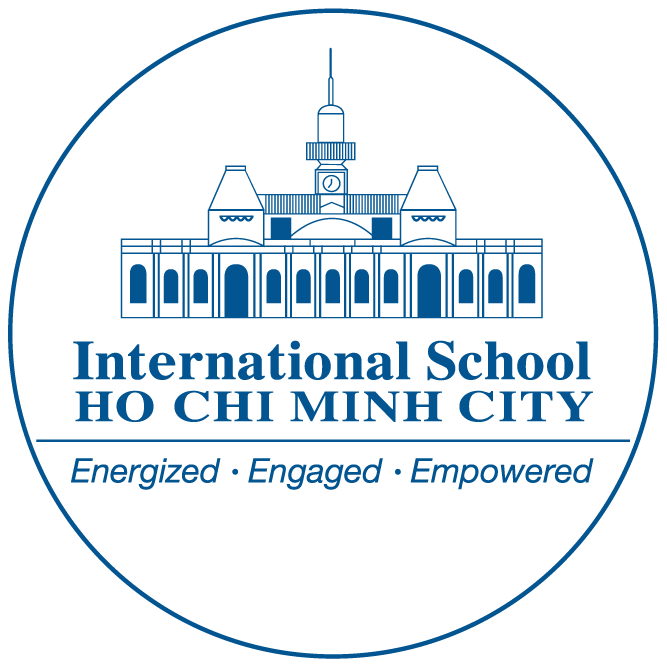10 Questions To Ask A School Before Enrolling Your Child
Choosing a school is a major decision that directly affects your child’s academic path, emotional development, and long-term potential. While brochures and campus tours provide a surface view, asking the right questions helps families identify schools that align with their values and goals.
Every question opens a window into what a school truly offers through its learning environment, student support and long term outcomes. At the International School Ho Chi Minh City (ISHCMC), these answers reflect a forward thinking approach that empowers students to thrive academically, socially, and emotionally in a rapidly evolving world.
1. What’s The School’s Teaching Approach?
A school’s educational philosophy influences everything from how teachers deliver lessons to how students engage in the classroom. Families should ask how learning is structured and whether students are encouraged to question, collaborate, and apply knowledge.
Schools that emphasize inquiry-based learning offer students the chance to explore ideas independently, think critically, and connect knowledge across different subjects. These programs prioritize depth over memorization, encouraging real understanding through meaningful learning experiences.
ISHCMC follows the International Baccalaureate (IB) framework across all year levels. This model focuses on developing thinking and communication skills through structured inquiry, helping students build a mindset that prepares them for lifelong learning.
2. How Are Individual Learning Needs Supported?
Children learn in different ways and grow at their own paces. Parents should ask whether the school adapts instruction, provides academic flexibility, and supports second-language learners or students with specific needs.
A well-structured school offers multiple pathways for success, with built-in support systems to help students stay engaged and confident. These might include differentiated instruction, enrichment programs, or language support for those new to English.

At ISHCMC, students choose from a range of academic tracks based on their strengths and goals. The school provides targeted language support through the Intensive English Language Programme and English as an Additional Language services starting in Grade 1. These programs ensure students keep pace with the curriculum while building their English proficiency.
3. Who Are Our Teachers, And What Experience Do They Bring?
The quality of instruction depends on the teachers’ knowledge, experience, and engagement. Families should ask about faculty qualifications, professional development, and how educators collaborate.
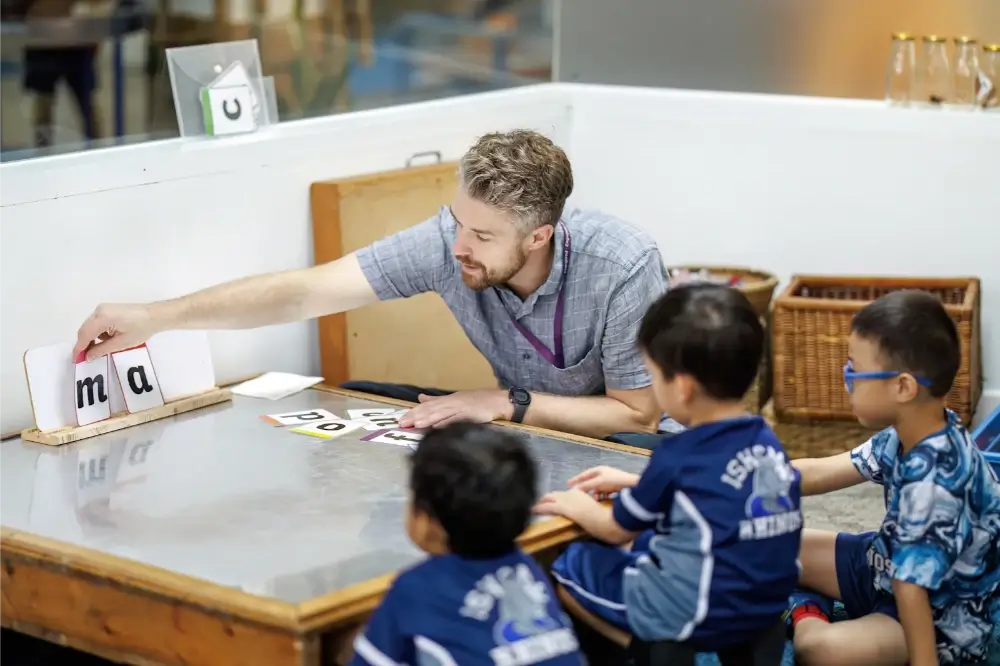
ISHCMC employs educators from a wide range of countries who are experienced in delivering international programs. Teachers participate in ongoing development focused on student-centered learning and collaborate regularly to ensure alignment across year levels.
4. How Does The School Prepare Students For The Future?
Parents want to know whether a school prepares their child for university, careers, and a rapidly changing world. This involves more than academic content. Ask how the school fosters leadership, critical thinking, and real-world application.
Strong academic programs should be paired with projects, practical experiences, and mentorship that connect classroom learning to real-life skills.
ISHCMC prepares students to succeed globally by focusing on research, innovation, and leadership. Students engage in long-term projects, community service, and entrepreneurship. Many graduates attend top universities, while others develop businesses or lead community initiatives before graduation.
5. What Extracurriculars Are Available?
At ISHCMC, students have access to a wide range of extracurricular activities that support their physical growth, creativity, and confidence beyond the classroom. From primary to secondary school, students are encouraged to explore their interests and develop new skills through structured and diverse programs.
In the Primary School, offerings include:
- Claymation, Graffiti Art, Sewing, and Calligraphy
- Mad Scientist, Chess, and Magic Club
- Violin, String Ensemble, Choir, and Taekwondo
- Skating, Mindfulness, and Kung Fu
In the Secondary School, students can join:
- Model United Nations (MUN), Economics and Business Club
- Math Competition Club, Debate Team
- Orchestra, Band, String Ensemble, and Choir
- Sports teams across swimming, football, basketball, and more
Whether a student is passionate about the arts, driven by competition, or simply wants to try something new, ISHCMC provides an environment that encourages self-discovery and leadership through extracurricular involvement.
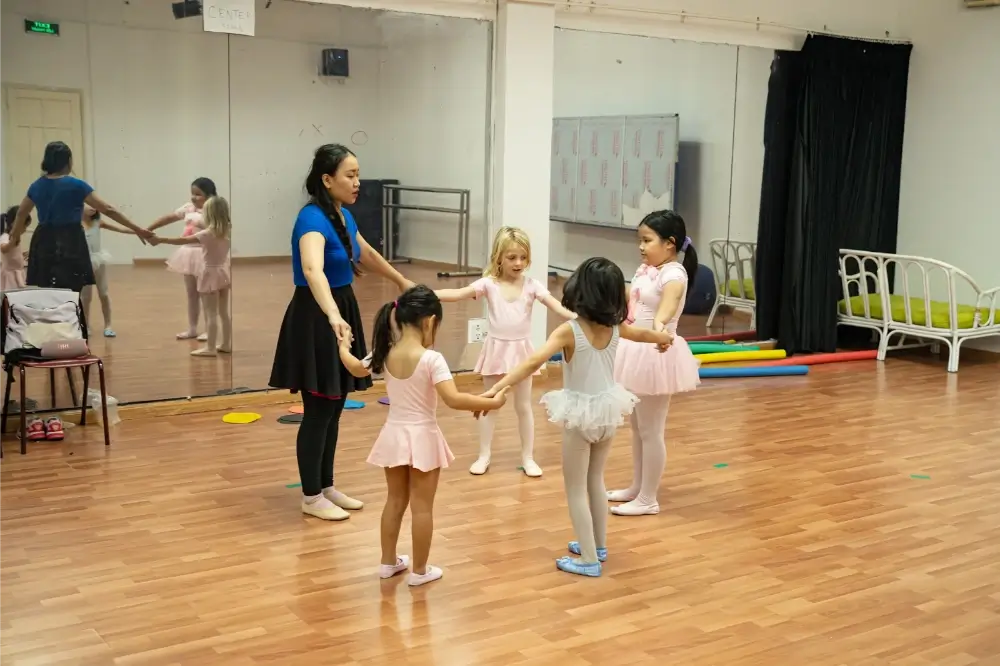
Whether a student is passionate about the arts, driven by competition, or simply wants to try something new, ISHCMC provides an environment that encourages self-discovery and leadership through extracurricular involvement.
6. How Is Student Well Being And Resilience Nurtured?
Wellbeing directly impacts a child’s ability to learn and grow. Ask how the school supports emotional development, encourages resilience, and builds a positive environment.
Schools should offer clear pastoral care systems, promote social-emotional learning, and create inclusive spaces that support every student’s confidence and sense of belonging.
At ISHCMC, teachers actively integrate well being into the daily learning experience. Teachers emphasize empathy, mindfulness, and emotional awareness. Primary students benefit from open classrooms that promote trust and collaboration, while secondary students access personalized guidance and peer support networks.
7. What Role Do Parents Play In The School Community?
Effective education requires strong collaboration between families and schools. Ask how parents stay informed, how they participate in school life, and how their feedback is handled.
Families should feel involved through regular communication, events, and opportunities to connect with staff and other parents.

ISHCMC maintains active relationships with families through clear communication channels and parent engagement events. The school welcomes feedback and encourages dialogue, fostering a supportive environment where families feel connected and informed.
8. What Facilities And Technologies Support Learning?
Learning environments should reflect the expectations of modern education. Ask about classroom setups, access to specialized spaces, and how digital tools support learning.
Effective facilities promote innovation, collaboration, and creativity, while technology strengthens engagement without replacing meaningful interaction.
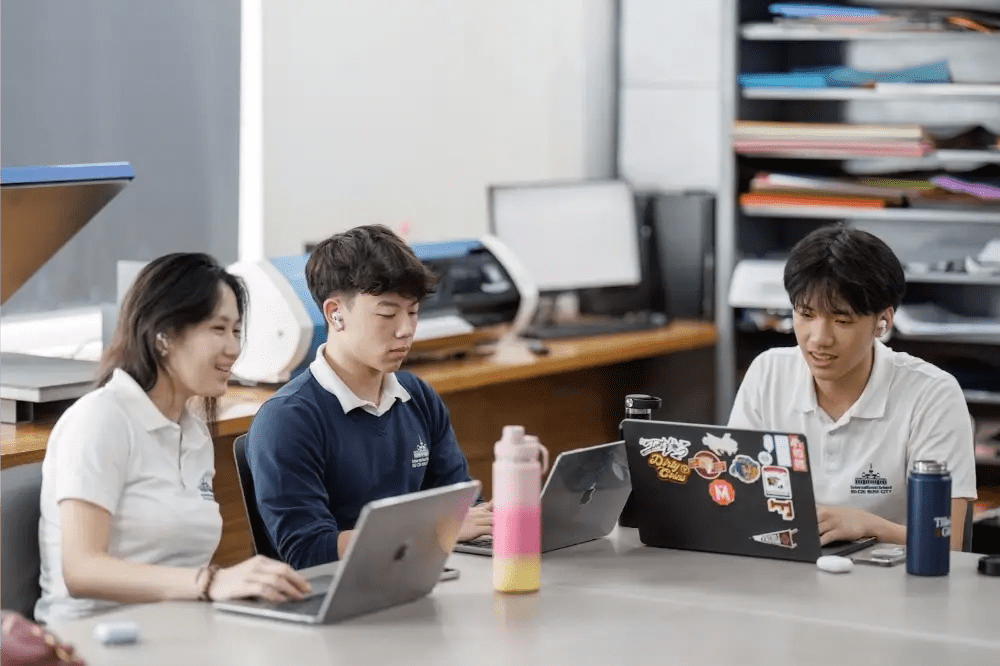
ISHCMC’s campuses are designed for modern learning. Classrooms are flexible, open, and equipped with digital tools. Students can access specialized labs for design, robotics, music, and media production. These resources support the development of problem-solving skills and digital fluency.
9. What Are Voices From Our Community: Parents And Students Share?
Experience matters. Families should ask to speak with current parents or alumni, review testimonials, and gather informal feedback to understand how well the school delivers on its promise.
Schools with strong cultures earn trust and respect from families through consistent communication, meaningful support, and positive outcomes.
ISHCMC receives strong endorsements from its parent and alumni communities. Families highlight the school’s inclusive culture, academic strength, and leadership focus. Graduates often share stories of how their time at ISHCMC shaped their ability to adapt, lead, and succeed globally.
10. How Does ISHCMC Deliver Value With A Clear Tuition Structure?
While cost is always a consideration, understanding the value behind tuition is even more important.
Great schools clearly outline what tuition includes, how it compares within the market, and the meaningful outcomes it leads to. Families should look for schools that are open about fees, offer flexible support, and show how their programs help students thrive academically, socially and personally.
ISHCMC provides clear tuition structures and support plans. The investment includes world-class teaching, extracurriculars, advanced technology, and individualized academic support. The long-term return is seen in university acceptances, student growth, and life readiness.
Start The Conversation That Shapes Your Child’s Future
Asking the right questions reveals the school culture, the depth of academic support, and the care your child will receive. These questions help you compare institutions based on substance, not just appearance.
For families seeking an international, forward-thinking school that emphasizes inquiry, resilience, and personalized pathways, ISHCMC stands out as a leading choice in Ho Chi Minh City.
Apply now or schedule a campus tour to see how ISHCMC brings these answers to life.

